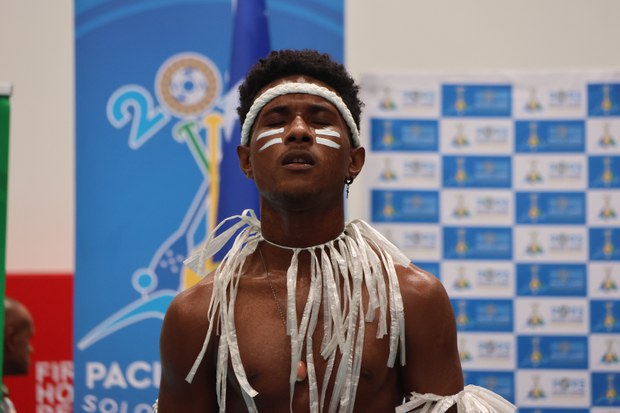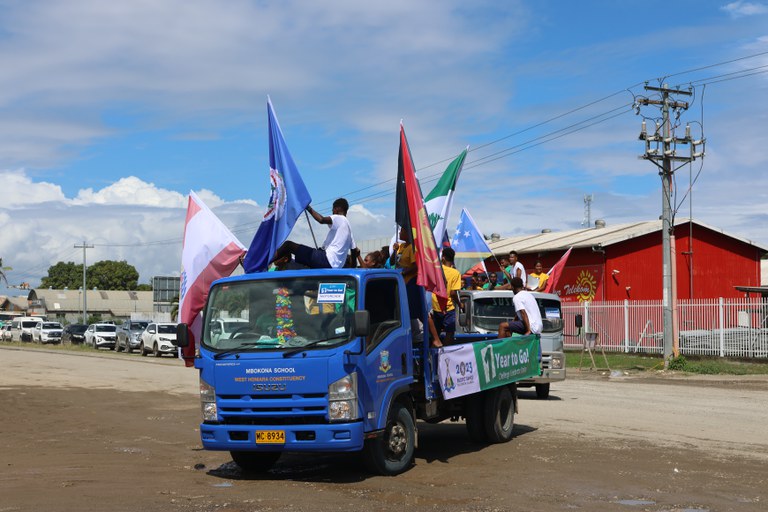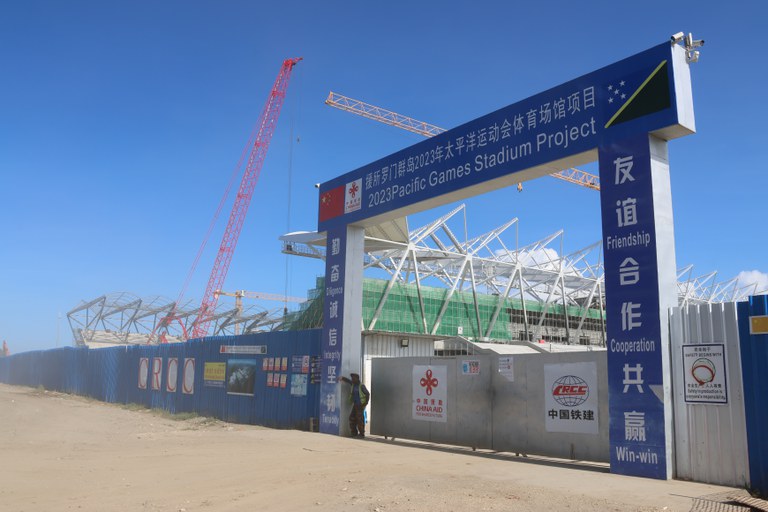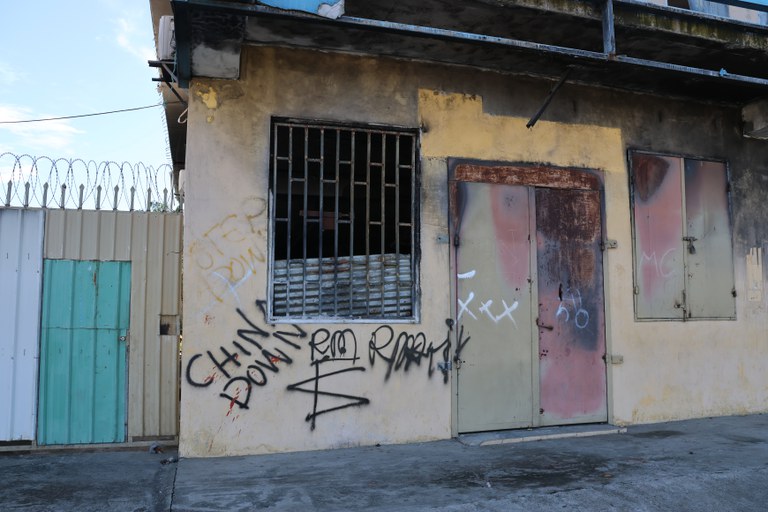Solomon Islands begins countdown to Pacific Games with appeal to national pride
2022.11.19
Honiara, Solomon Islands
 A performer concentrates at the one-year-to-go event for the 2023 Pacific Games on Saturday Nov. 19, 2022 in Honiara, Solomon Islands
A performer concentrates at the one-year-to-go event for the 2023 Pacific Games on Saturday Nov. 19, 2022 in Honiara, Solomon Islands
Updated at 3:15 p.m. ET on 2022-11-30
The Solomon Islands organizers of the 2023 Pacific Games marked the beginning of a one-year countdown with a noisy parade, stirring dance performance and a vow that the Chinese-bankrolled sporting event will rejuvenate national pride and the economy.
The South Pacific country of some 700,000 people and hundreds of islands has for the past several decades been known more for ethnic strife and political instability than sporting success. It is the third most populous island country in the Pacific, and will soon become the second, but has sometimes been outcompeted by countries with population numbers in the thousands.
The lack of sporting achievement “put us to shame because we have the people and the talent,” said Jimmie Rodgers, chairman of the National Hosting Authority for the Games, in a speech to Saturday’s one-year-to-go event, attended by several dozen people, including parade participants.
“The 2023 Pacific Games is not just about two weeks of competition. It is not just about going for medals. It is not just about building facilities,” he said. “It is about building this country. It is about starting the journey so our young people can have a future to look toward.”
Saturday’s proceedings began with a procession of trucks through Honiara carrying students waving flags from the two dozen Pacific countries that will compete in the 2023 Games. Under a blazing sun, they marched through a sports field to recently constructed facilities at the country’s national sports institute. After the national anthem and speeches, young performers representing the Solomon Islands’ diversity emerged through wafting smoke and danced with the Games’ mascot Solo, a bright yellow giant turtle.

Parts of the Solomon Islands’ capital Honiara are coated in a film of dust as Japan’s Kitano Construction Corp. tries to level out and reseal kilometers of potholed road from the airport to the city and Chinese state companies race to finish the main stadium. Residents said the highway project appears to have suffered more setbacks than progress in recent months due to floods and poor drainage.
Some games venues such as a multi-sports facility built by Indonesia are already completed but the main stadium has suffered delays because of the Covid-19 pandemic.
Delmah Nori, a former leader of the country’s netball federation, said the Games could be an economic boost and develop the country’s sporting prowess.
“It’s good for our people especially for the tourism side, like it may bring people here to pay for some of the crafts our people are doing, because during the Covid most of them lost their income,” she said.
“Also it helps to develop sports facilities, because we don’t have that, we always have to find [another] way to train our athletes because we don’t have facilities.”
Prime Minister Manasseh Sogavare on Saturday said the main stadium would be completed by July next year, several months ahead of the two-week regional sporting competition.

Sogavare, a Seventh Day Adventist, didn’t attend Saturday’s event because he was observing the Sabbath. His remarks were made in a pre-recorded video.
He said the economic activity generated by preparations for the games – which include a new airport terminal, numerous sporting facilities and the new highway – have helped Solomon Islanders weather the pandemic and riots late last year.
Organizers’ initial doubts about whether the country could be a successful host have been overcome because of assistance from countries such as China and Australia that are shouldering the cost, he said.
“We are on track to successfully host the Games. We are ready. We have seen rapid progress in the construction of many of the Games’ venues,” Sogavare said. “We have gone past the point of no return. There is no turning back from this point, only focus.”
The Games are an example of Chinese largesse in the Pacific region, where Beijing is seeking to eclipse U.S. dominance. China is contributing half of the approximate 1.85 billion Solomon Island dollars (U.S. $220 million) cost and the Solomon Islands government nearly one third, according to figures given by Rodgers. Australia, Indonesia, Papua New Guinea and Japan also have made significant contributions.
Sogavare’s government switched its diplomatic recognition to Beijing from Taiwan in 2019, a move that caused a fissure between the central government and Malaita, the most populous province, which adamantly backs Taiwan and has banned Chinese investment. The Chinatown in Honiara was torched during anti-government and anti-Beijing protests in November last year.

A security pact between Beijing and Honiara, signed in April, reinforced U.S. concern about China’s burgeoning influence, and Washington has vowed to reopen its embassy in the Solomon Islands, which was closed in the early 1990s. Chinese police as well as Australian police and military are a visible presence in Honiara, where disgruntlement with Chinese domination of local business remains a potential flashpoint.
The Games have attracted criticism from some, including opposition leader Matthew Wale, who said even the country’s main hospital in Honiara suffers shortages of basic but potentially life-saving medicines.
“Imagine the hospitals out in the islands and the clinics below them. And yet we’re spending hundreds of millions of dollars on sporting facilities. The sense of perspective and priority is lopsided,” he said.
Others say that in a country that is still predominantly rural, the games won’t have any impact outside Honiara and will reinforce the gap in development with other islands. The organizers had sent Solo, the Games mascot, on a tour around the country to raise awareness.
“We don’t really feel that it’s a good thing because we are struggling to get money for our families, and we don’t have anything better than playing games,” said Wilfred Atomee, a former provincial politician, who said he now gets by with support from his children.
“It will be expensive to maintain the facilities and the government doesn’t have money,” he said.
This report has been updated to include a video.







